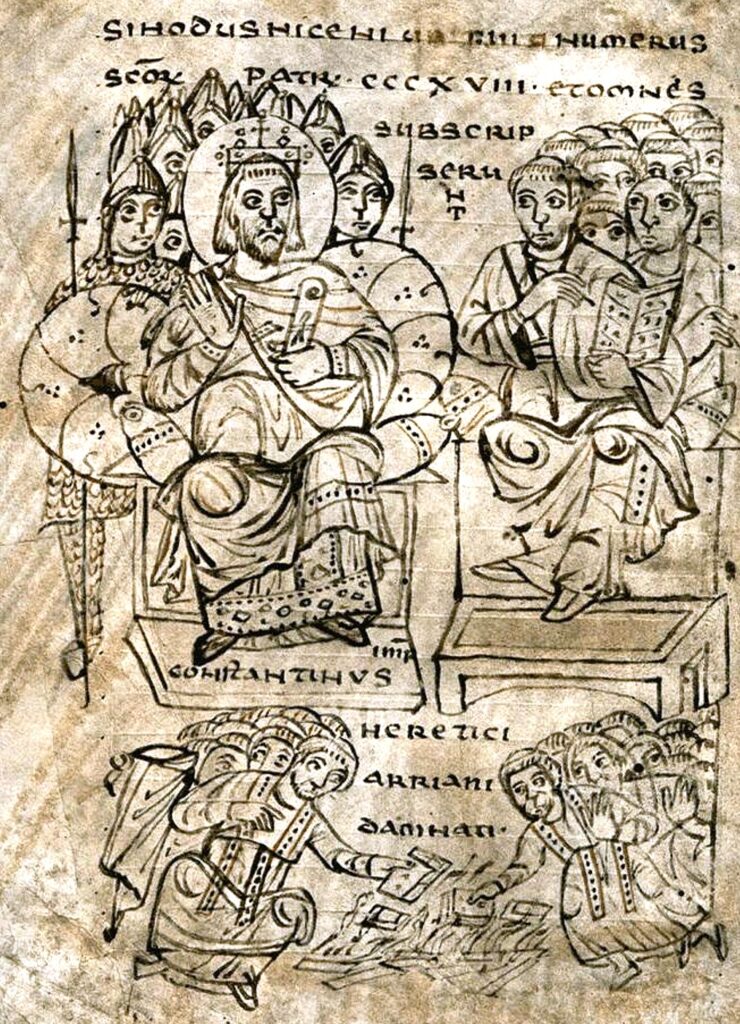Podcast: Play in new window | Download
Subscribe: Spotify | Email | RSS
In this second half of our wide-ranging conversation inspired by his epic tweet thread on Trinity theories, our topics include: the “Persons” of the Trinity as modes, the New Testament authors as “primitive” theologians, divine simplicity, “social” Trinity theories, divine processions or lack thereof, mythological tales about what the three Persons before creation, the misfit between Scriptural language and trinitarian language, what I call “the problem of the missing Amigo,” standards of intellectual rigor in theology, “the Trinity” as a shibboleth, the recent idea that to show his solidarity with us God himself died on the cross for us, the traditional idea of divine impassibility, mysterian defenses of trinitarian traditions, how we could know what exactly it is that The Tradition demands about “the Trinity,” how Trinity theories relate to religious freedom, Roman Catholics’ relatively recent embrace of religious freedom and tolerance, why Dr. Nemes considers himself to be a post-catholic theologian, religious minorities in traditionally Eastern Orthodox countries like Romania and Russia, God’s allowing theological and practical errors within mainstream Christianity, how we should view the “ecumenical creeds,” how “consensus” was reached at the end of the “Arian” controversy, converts to Catholicism and Orthodoxy, Dr. Nemes’ view that Trinity theories should be viewed as tolerable opinions but not dogma, paradigm shifts, the value of reason and reasonable arguments in theology, odium theologicum, and apologetics as trash-talking the “heretics.”
Thanks to Dr. Nemes for a good conversation!
Links for this episode:

Dr. Nemes’s Tweet thread which inspired this conversation.
Classical Theism: Is God Personal Like Us? Ryan Mullins + Steven Nemes
podcast 145 – ‘Tis Mystery All: the Immortal dies!
podcast 31 – Dr. William Hasker on the “Arian” Controversy
podcast 22 – a cure for odium theologicum
podcast 271 – Does your Trinity theory require relative identity?
“There is no salvation outside the Church.”
10 steps towards getting less confused about the Trinity – #6 get a date – part 2
podcast 248 – How Trinity theories conflict with the Bible
How Trinity theories conflict with the New Testament
the evolution of my views on the Trinity
James 3:13-18

Both parts of this conversation were very interesting. I’m fascinated by Dr. Nemes’ approach, and will have to look further into his work.
So I think I understand the motive behind the drive to codify Trinitarianism in the Nicene and later creeds… My impression is that the divisions between the varying camps (Trinitarians, Arians, etc) had political implications, and so unity was desirable. However, what I’m not clear on was *why* this was so divisive an issue that the Emperor felt the need to step in. The church could have just kept on using the language of the New Testament (i.e. Jesus was the Son of God in whom the fullness of God dwelt, and so forth) and stopped there. Why was the drive to devise some sort of metaphysical explanation for what was really going on so strong? As Dale has pointed out before, many modern Christians go about life and worship quite successfully without a clear adherence to any particular Trinity theory. Was Arian life and worship that radically different from Trinitarian life and worship that people were willing to fight, exile, and even kill each other over it? Was the theological controversy really more of a proxy for larger political or social divisions? (Like the way masking has become in our own time?) If so, what were those larger divisions?
Comments are closed.